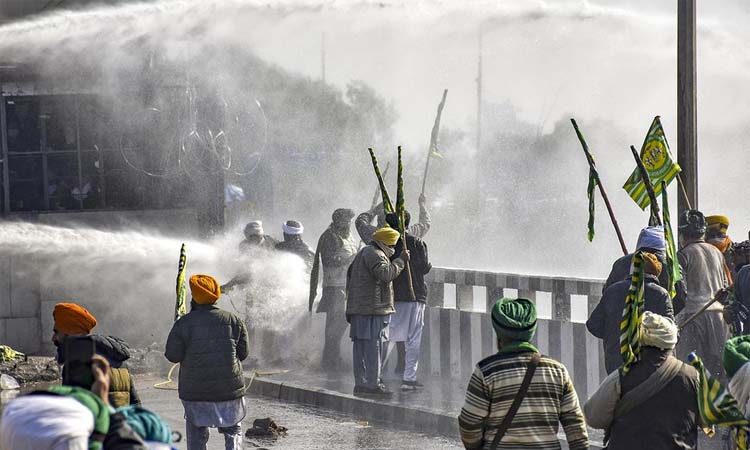- Courses
- GS Full Course 1 Year
- GS Full Course 2 Year
- GS Full Course 3 Year
- GS Full Course Till Selection
- Answer Alpha: Mains 2025 Mentorship
- MEP (Mains Enrichment Programme) Data, Facts
- Essay Target – 150+ Marks
- Online Program
- GS Recorded Course
- Polity
- Geography
- Economy
- Ancient, Medieval and Art & Culture AMAC
- Modern India, Post Independence & World History
- Environment
- Governance
- Science & Technology
- International Relations and Internal Security
- Disaster Management
- Ethics
- NCERT Current Affairs
- Indian Society and Social Issue
- NCERT- Science and Technology
- NCERT - Geography
- NCERT - Ancient History
- NCERT- World History
- NCERT Modern History
- CSAT
- 5 LAYERED ARJUNA Mentorship
- Public Administration Optional
- ABOUT US
- OUR TOPPERS
- TEST SERIES
- FREE STUDY MATERIAL
- VIDEOS
- CONTACT US
Parliamentary Standing Committee Recommendations on MSP, Debt Waiver
Parliamentary Standing Committee Recommendations on MSP, Debt Waiver
19-12-2024

- On December 17, 2024, the Parliamentary Standing Committee on Agriculture, Animal Husbandry, and Food Processing tabled its first report on the demands for grants for the Ministry of Agriculture and Farmers Welfare for the 2024-25 fiscal year in the 18th Lok Sabha.
- The committee, chaired by Charanjit Singh Channi, the former Punjab Chief Minister, made several important recommendations aimed at improving farmers' welfare.
- Among these recommendations are the legal guarantee of Minimum Support Price (MSP), compensation for stubble disposal, debt waiver schemes, increased budgetary allocations, and more.
|
Context: Farmers' Protest and Challenges:
|
Key Recommendations of the Report:
Legal Guarantee of Minimum Support Price (MSP):
- The committee recommends a legally binding MSP, which would ensure that farmers receive a guaranteed price for their crops, irrespective of market conditions.
- A legal MSP would provide financial stability for farmers, reduce farmer suicides, mitigate the volatility in agricultural markets, alleviate the debt burden, and help improve the mental health of farmers.
- By stabilizing the prices of foodgrains, a legal MSP would align with national food security goals, ensuring affordable food for public distribution systems.
- It would also contribute to economic activity in rural areas, as farmers with guaranteed income would be more likely to invest in sustainable agricultural practices, which in turn could lead to higher productivity and rural economic growth.
- The committee recommends that the Ministry of Agriculture declare a clear roadmap for the implementation of a legal MSP as soon as possible.
- This would also help the central government plan its finances accordingly.
- The committee further suggests that the Ministry provide a report in Parliament after every crop season, detailing the number of farmers who sold their produce at MSP and the gap between MSP and actual market prices for each crop.
Compensation for Paddy Waste Disposal:
- The burning of paddy stubble (parali) is a significant environmental issue, especially in Punjab, where it leads to severe air pollution and contributes to smog in the Delhi-NCR region during the winter months.
- The committee suggests that farmers be compensated for the proper management and disposal of crop residue, rather than burning it.
- The Punjab government has requested the Centre to provide Rs 2,000 per acre as a bonus for farmers managing the disposal of stubble.
- Punjab has offered to contribute half the amount, with the Centre expected to cover the other half.
Increase in PM-KISAN Support:
- The committee has recommended increasing the annual PM-KISAN Samman Nidhi (a direct income support scheme for farmers) from Rs 6,000 to Rs 12,000 per year for each eligible farmer.
- It also suggests that tenant farmers and farm labourers be included in the scheme to ensure that all agricultural workers benefit from financial support.
Debt Waiver to Combat Farmer Distress:
- According to the NABARD Survey (2022-23), the percentage of rural families taking loans has increased from 47.4% in 2016-17 to 52% in 2021-22.
- As a result, the financial pressure on farmers has increased, leading to a rise in farmer distress and suicides linked to debt repayment.
- The committee recommends introducing a debt waiver scheme specifically aimed at farmers and farm labourers to ease their financial burden and reduce distress, which could help in reducing suicides caused by mounting debts.
Increasing Budgetary Allocations for Agriculture:
- The committee points out that despite the absolute increase in the total budgetary allocation for agriculture from 2021-22 to 2024-25, the percentage share of agriculture in the total central plan outlay has declined.
- In 2020-21, agriculture received 3.53% of the total central budget, but this share dropped to 2.54% in 2024-25.
- Given the decline in agriculture's growth rate to 1.4% in 2023-24 (the lowest in the last 7 years), the committee urges the government to increase budget allocations for agriculture.
- This would help improve agricultural growth and ensure a better future for the sector.
Other Key Recommendations:
- The committee recommends implementing compulsory crop insurance for smallholder farmers (those with landholdings of up to 2 acres), similar to the Pradhan Mantri Jan Arogya Yojana (PM-JAY) health insurance scheme.
- This would provide financial protection to small farmers against crop failures due to unforeseen circumstances like natural disasters.
- The committee recommends the establishment of a National Commission for Minimum Living Wages for Farm Labourers to address long-standing issues regarding the wages and welfare of agricultural labourers.
- The committee also suggests renaming the Department of Agriculture and Farmers Welfare to Department of Agriculture, Farmers, and Farm Labourers Welfare.
- This would highlight the broader focus on the welfare of farm labourers, who often face exploitation and neglect in agricultural policy.
Conclusion:
The Parliamentary Standing Committee’s report highlights several critical measures for improving the economic and social welfare of Indian farmers. Key proposals like legal MSP guarantees, debt waiver schemes, increased financial support through PM-KISAN, and compensation for paddy waste disposal aim to tackle the ongoing agricultural crisis.
| Also Read | |
| UPSC Prelims Result | UPSC Daily Current Affairs |
| UPSC Monthly Mgazine | Previous Year Interview Questions |
| Free MCQs for UPSC Prelims | UPSC Test Series |
| ENSURE IAS NOTES | Our Booklist |




